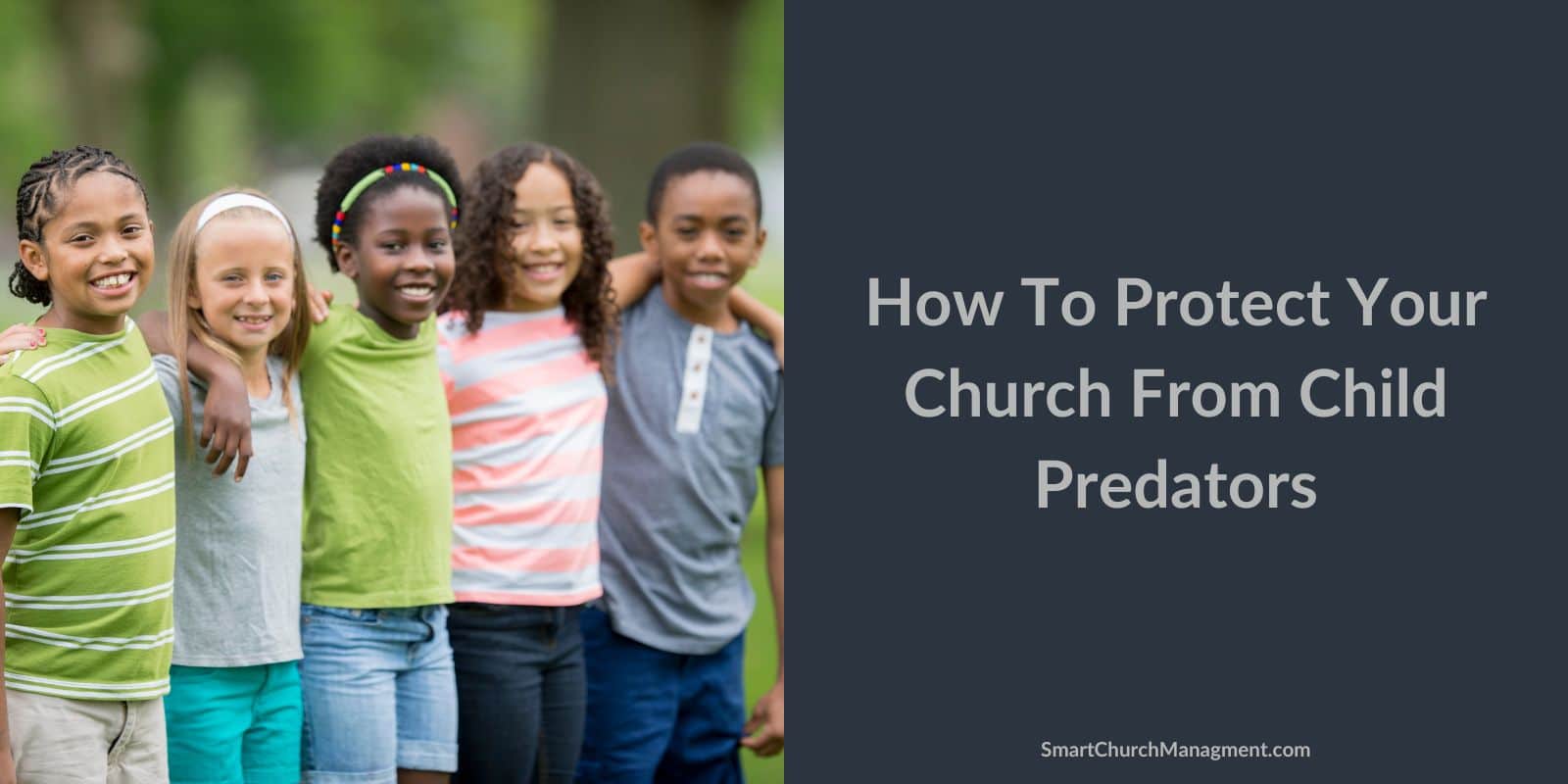Estimated reading time: 6 minutes
Churches take pride in providing life-changing ministries to their members which often include children and youth programs.
Ministry leaders need to be proactive in their approach to protecting those in their care from predators.
We read all too often of disturbing cases of people in church leadership taking advantage of the most vulnerable.
It seems like stories about child abuse of minors have become a regular topic on the evening news, with one troubling allegation after another.
The recent report on the Champions Forest Baptist Church abuse lawsuit is yet another heartbreaking example of church organizations not protecting church members from abuse.
Churches are no exception to these accusations and should take steps to create a safe place for their members, children, and youth.
Church leadership must recognize their responsibility to keep their kids safe and take the necessary steps to guard against predators.
Child Sexual Abuse Statistics
- child abuse crosses all socioeconomic and educational groups;
- girls are more often abused than boys – but the number of cases for boys is significant;
- 90% of the time, the offenders are men;
- most children are abused by someone they know and trust;
- 1 in 5 girls and 1 in 20 boys is a victim of child sexual abuse;
- Children between the ages of 7 and 13 are the most vulnerable;
- 16% of youth ages 14 to 17 have been sexually victimized;
According to a 2003 National Institute of Justice report, 3 out of 4 adolescents who have been sexually assaulted were victimized by someone they knew well
Another study of insurers of protestant churches claims 260 cases of child abuse in the church are reported each year.
The cost to churches for insuring for sexual misconduct is a very real budget item.

Media attention about churches that cover up child abuse has raised awareness of the serious nature of this kind of abuse and the lingering effect it has on these children as they reach adulthood.
When child abuse happens in a church, it has a significant effect on everyone involved and can tarnish the reputation of a church body.
This does not even include the financial impact litigation could have if the church were found to be negligent.
5 Things You Can Do to Help Prevent Child Abuse in Your Church
1. Volunteer Screening
Screening volunteers is the most critical thing that can be done to protect your children and the congregation from sexual predators.
A well-run volunteer program incorporates a thorough screening of volunteers before they are placed in a volunteer role.
This includes an application process, personal interviews, and checking references.
Personal interviews should ask direct questions about volunteer candidates’ interest in working with children or young adolescents. Be direct and ask difficult questions.
Encourage a “waiting” period before someone is allowed to volunteer, particularly if it involves working with children or teens.
2. Background Checks
Every person who works for a church, whether it be paid or volunteer, should go through a criminal background check.
Many vendors can help with background checks and turn information around in a few days. Your insurance carrier should be a resource for this tool.
There is an expense to this, but it is well worth the investment if it means protecting just one child.
Keep in mind that background checks can make you aware of a person who has a sexual predator conviction on their record.
What a background check can’t do is identify potential predators, which is why volunteer oversight and a strict ‘two-person rule’ is so important.
3. Child Abuse Training
Educate the congregation and volunteers on the reality of child abuse. Most people would be surprised to learn about the very real statistics.
Make everyone aware of the risks and the signs of abuse. This proactive information sharing allows the entire church to participate in preventing abuse.
Incorporate the expectation that if you see something, say something.
This global awareness may be one of the best deterrents because it puts any potential predators on notice that everyone is paying attention and watching out for the kids.
4. Ensure Proper Supervision
Supervise everyone who has access to children, and there should never be a time when a single adult is allowed to be alone with a single child.
For instance, a child should never be allowed in a restroom with a single volunteer.
The two-person rule is a common requirement for volunteers working with children and youth. This rule states that a child is never left alone with one volunteer worker.
Keep in mind that this includes youth volunteers who might be helping with children’s ministry.
Did you know that the average age for a predator’s first offense against a minor child is between 12 and 14 years old?
There may be times when this seems like overkill, but those are the moments when it is most important.
This practice should include well-meaning volunteers who offer to pick up or take children home who may need a ride.
Provide strict guidelines for employees and volunteers outlining the dos and don’ts of working with kids.
5. Required Reporting
Most churches would agree that learning of a volunteer or employee who crossed a line is a very sensitive situation. Often, the perpetrator is a trusted and loved member.
However, the law requires reporting of suspected child abuse. This means there needs to be clear reporting policies.
The reporting process can be covered in training sessions for employees and volunteers.
Each state is a little different, so check your state statutes to ensure you have the property policy and procedure in place.
Don’t Allow Complacency To Creep In
The recent child abuse scandals have again put this serious situation at the forefront of our minds.
Your church probably has policies and procedures in place, at least at some level.
There is no better time than now to dust off old policies, schedule training, and talk to your congregation about steps you are taking to keep the kids you serve safe.
If you are a member of SCM you can access a child abuse policy by logging into your account here. If you are not a member and would like access to our growing library of church forms, documents, and job descriptions, you can learn more here.



